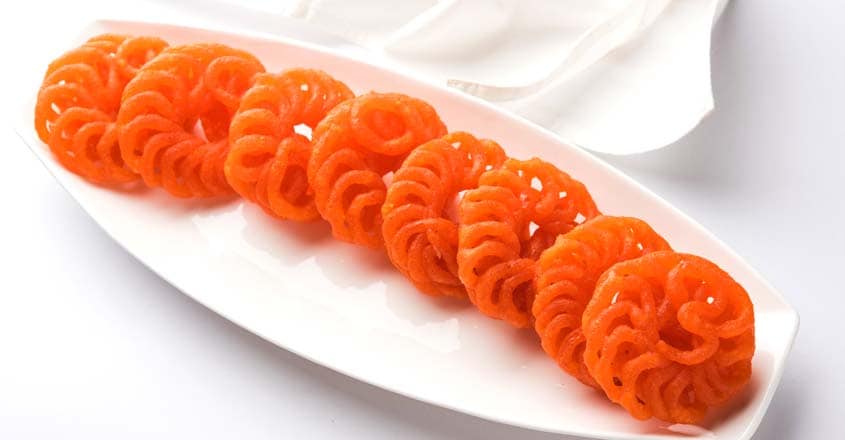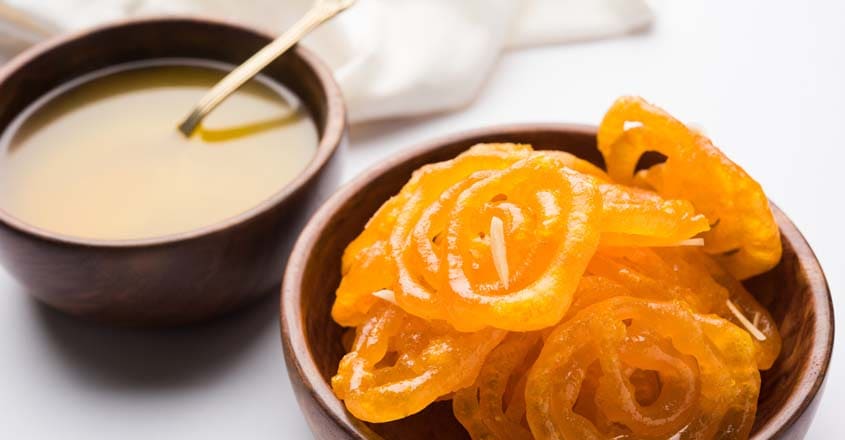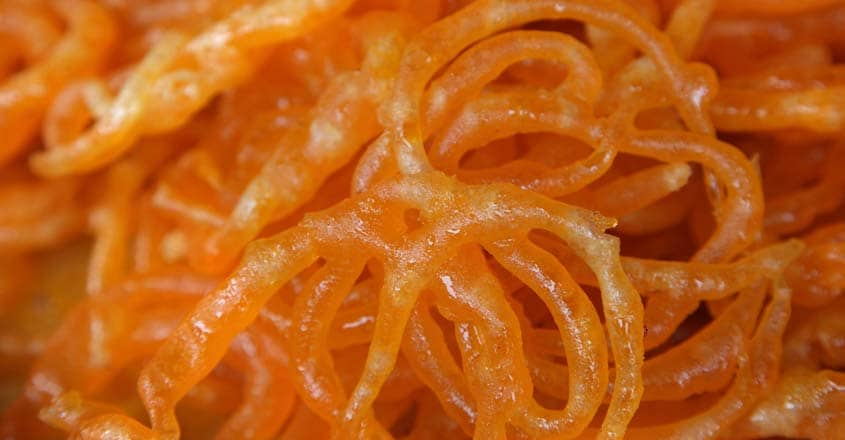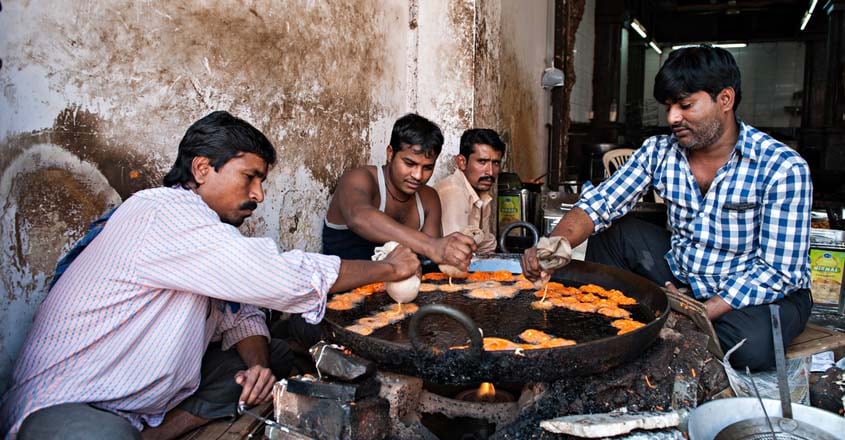The 'jalebis' you have been feasting on are indeed 'imartis'

Mail This Article
Food in India is not immune to cultural convergence. As a result, dishes that were typical to a particular region are now readily available in far corners of the country. South Indian food items like idli, vada, and dosa have found a constant place on the breakfast platter of many in the northern and western states over the years. East Indian sweet rasgulla is not only popular all over the country, but has also branched out into delicious derivatives like rajbhog and kamala bhog.
This smudging of culinary boundaries that brought forth mouthwatering results also gave rise to confusion regarding the origins and names of some food preparations. "What's in a name?" you may ask. Not much. But sometimes foods that look similar, may be constituted of distinct ingredients and using there names interchangeably does not help anyone.
A case in point can be a sweet item that is in plain site of everyone in Kerala. A red orange, sugary snack available at most Kerala bakeries that puts an end to many sweet cravings.
Yes, the 'jalebi' we have been sinking our sweet tooth into for years is not 'jalebi' at all! It is, in fact, 'imarti' ('jingri' in Telugu) which has been disguising as 'jalebi' in sweetshops of Kerala. Imarti is not even a close relative of jalebi; a distant cousin, if you are bent on associating the two based on the style of cooking.

Origin of jalebi can be traced back to the Middle East where many distant variations of it like bamiyeh (Persian doughnuts) and zoolbia are found. These are also prepared with a fermented batter but the frying method of jalebi is said to have originated in India itself.
Learn how to make jalebis here

But it is not the method of cooking that differentiates jalebi and imarti, but the primary ingredients that are used in their preparation – imarti is made of urad dal, while jalebi is a maida item! This is what gives them different colours. Imarti being deep orange and jalebis ranging between orange and yellow.
The ever-lasting confusion between the two can be attributed to the similarity in cooking methods. Batter for both is fermented and transferred into a piping bag before being deep fried in coiled, flower-like shapes. Then they are dipped in cardamom-flavoured sugar syrup which gives the sugary sweetness to both items. Which brings us to another distinction: imartis can be enjoyed cold and jalebis are best eaten hot. This also lends imarti a chewy texture while rendering jalebis crispness.
When it comes to the shapes, even though both are coil-like, the imartis resemble flowers while jalebis are more randomly spread.

If you take a morning walk in a local market of north India, you are sure to encounter the appetising whiff of jalebis being fried in bulk. They are a part of the calorie-loaded breakfast of north Indians. A popular way to enjoy jalebis is to soak them in cold fresh milk till semi-soggy. The rousing sweetness of jalebis is balanced perfectly by the cold, bland milk, making the combination an instant hit. In some places, the milk is substituted by plain curd too.
By the virtue of being edible when cold, imartis are readily served at functions, too. Top a couple with a spoonful of rabri (sweetened milk solids) and you have no less than an exotic dessert.

So, to answer the question, there is not a lot in the name, especially if both names lead you to mouth-watering sweets. Munch on either of these (or both!) and share with people this culinary trivia you just learnt.


